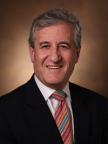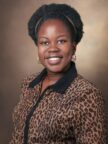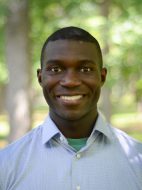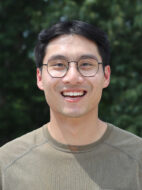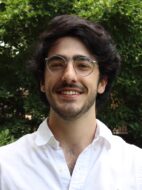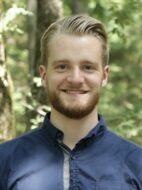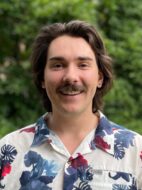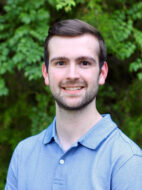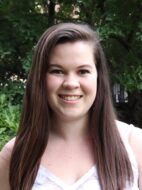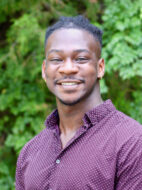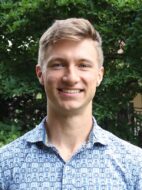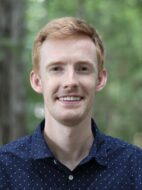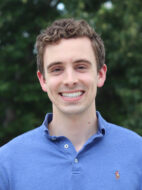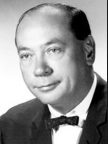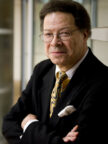Sutherland-Watkins College
Sutherland-Watkins Advising College Faculty Leaders
Senior Vice President, Personalized Medicine
Professor, Medicine
Professor, Biomedical Informatics
William Stokes Chair, Experimental Therapeutics
Professor, Pharmacology
Professor, Medicine
Professor, Pathology, Microbiology & Immunology
Director, Medical Scholars Program
Sutherland-Watkins Associate College Advisors
Fellow, Cardiology, Medicine
Learn more about Dr. Schmeckpeper here and here.
Sutherland-Watkins Members
Sutherland-Watkins Advising College Namesake
Dr. Earl Wilbur Sutherland Jr. was born in 1915 in Burlingame, Kansas. Sutherland received his bachelor’s degree in chemistry in 1937 from Washburn University (Topeka, KS) and earned his medical degree in 1942 from Washington University School of Medicine in St. Louis. After serving as a doctor in World War II, he returned to Washington University as a researcher in the pharmacology laboratory of Nobel laureate Carl Ferdinand Cori. In 1953, he became director of the department of pharmacology at Case Western Reserve University (then Western Reserve University) in Cleveland, OH where he discovered the role of cyclic AMP in mediating the action of certain hormones. In 1963, desiring to limit his duties to research, Sutherland moved to Vanderbilt University School of Medicine in Nashville, where he was a professor of physiology until 1973. At the time of his death in 1974, Sutherland was a distinguished professor of biochemistry at University of Miami Medical School.
In 1956 Sutherland and Dr. T. W. Rall discovered cyclic AMP. Sutherland’s further research demonstrated the ubiquitous nature and prime importance of this chemical and its associated compounds, notably adenyl cyclase, in all living things. As the result of Sutherland’s work and that of those who followed his lead, it became known that hormones are not the sole regulatory substances in the chemistry of living organisms, as had previously been believed. In many cases, necessary cellular reactions are triggered by cyclic AMP, the almost universal “second messenger,” responding to the hormonal signal. Sutherland’s work on hormones opened up new paths of research into diabetes, cancer, and cholera.
A professor of physiology at Vanderbilt University Medical Center from 1963 to 1973. He won a Nobel Prize in Physiology or Medicine in 1971 “for his discoveries concerning the mechanisms of the action of hormones,” especially epinephrine, via second messengers (such as cyclic adenosine monophosphate, cyclic AMP). In addition to the Nobel Prize, Sutherland won the Albert Lasker Award for basic medical research in 1970 and received the National Medal of Science in 1973. He was elected to the National Academy of Sciences in 1966.
Distinguished surgeon Dr. Levi Watkins, Jr., was born on June 13, 1944, in Parsons, Kansas, the third of six children; his father, Levi Watkins, Sr., was a college professor who became president of Alabama State College in Montgomery, Alabama. After graduating as valedictorian from the Alabama State Laboratory High School, Watkins entered Tennessee State University, majoring in biology and further developing his interests in political science and civil rights. After graduating with honors from Tennessee State in 1966, Watkins became the first African American to be admitted to and to graduate from Vanderbilt University’s School of Medicine.
After graduating from Vanderbilt, Watkins started a general surgery residency at Johns Hopkins University Hospital in 1971, where he was the first black chief resident of cardiac surgery. Watkins continued his professional career by conducting cardiac research at the Harvard Medical School of Physiology from 1973-1975. At Harvard, Watkins investigated the relationship between congestive heart failure and the renin angiotensis system. After returning to Johns Hopkins, Watkins was a cardiothoracic surgery fellow from 1976 to 1978; he became a full-time faculty member in 1978 in the Division of Cardiac Surgery, joining the medical school admissions committee a year later.
In 1980, Watkins performed the world’s first human implantation of the automatic implantable defibrillator; he also developed the cardiac arrhythmia service at Johns Hopkins. Watkins did research on coronary heart disease in African Americans through the Minority Health Commission and Panel for Coronary Artery Bypass Surgery; because of this work on behalf of minority students he was appointed to the National Board of the Robert Wood Johnson Minority Faculty Development Program in 1983.
In 1991, Watkins was promoted to full professor of cardiac surgery and dean for Postdoctoral Programs and Faculty Development at Johns Hopkins. In these positions, Watkins revolutionized postdoctoral education in America by helping to establish the nation’s first postdoctoral association. In 1992, Vanderbilt University established a Professorship and Associate Deanship in Dr. Watkins’s name to honor his work for diversity in medical education.
Watkins received honorary degrees from Sojourner Douglass-College (1988), Meharry Medical College (1989), Spelman College (1996), and Morgan State University (1997); his other professional affiliations included the American Board of Surgery and the American Board of Thoracic Surgery. Watkins has been the recipient of numerous accolades over the years, including the Vanderbilt Medal of Honor (1998), the Johns Hopkins University Alumni Association Heritage Award (1999). In 2000, Watkins was honored by the Guidant Corporation for pioneering work on the automatic defibrillator.
Dr. Watkins passed away on April 11, 2015 at the age of 70.
Source: The History Makers


